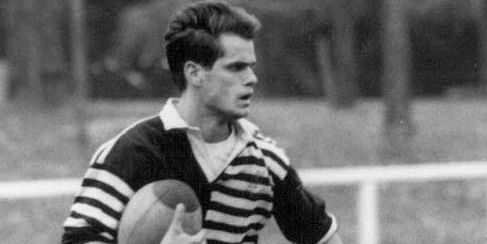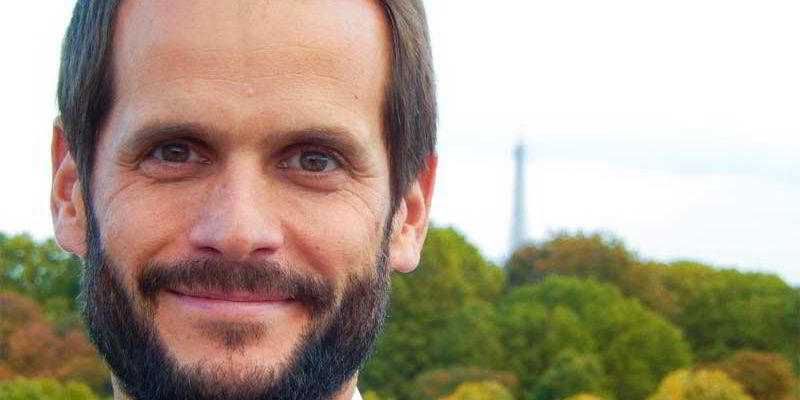If Victor Hugo had written a book about Louis Dreyfus Armateurs, he would probably have called it Les Responsables. Taking over the 164-year-old shipping companies has imbued Edouard Louis-Dreyfus with a huge sense of responsibility.
The 42-year-old boss of France’s most emblematic shipping company was never sure his father, Philippe, would hand over the keys of the enterprise he had run for nearly two decades.
“It really was his baby. I was wondering whether he would be able to let it go,” says Edouard from his riverside offices that stare across Paris towards the Eiffel Tower. “The only way to find out was to make it happen.”
That was five months ago. Today, Edouard is in full control, having taken over as president on 1 July. He is the fifth generation heading a business dating back to the days of Leopold Louis-Dreyfus in 1851 (a decade before the publication of Hugo’s Les Miserables). Philippe, who turned 70 in March, has dedicated himself to working with international shipping bodies, including Bimco, where he is president.
“I think somewhere he realised it was maybe the right time,” says Edouard. “Surprisingly or not, he really let it go.”
He takes pride in his appointment and is philosophical about taking the reins during the worst shipping crisis in a generation.
“Okay, it is not the best period we have seen in shipping,” he admits. “But it’s probably best to take over in rough seas, rather than the other way round, where you’re taking over in beautiful weather and the only thing you can encounter is a storm.”
The official line on the handover from father to son refers to “change and continuity”, noting that Edouard was a member of the executive committee for six years. His father retains an office next door as chairman of the supervisory board. Other members of the executive committee remain close at hand — chief executive Gildas Maire and Alain Le Guillard, who is chief executive, operations.
Yet there are new challenges and pressures, especially the responsibility towards “everyone in this building”, plus the 1,600 seafarers working on the company’s ships, says Louis-Dreyfus.
“The main change is realising that whatever I decide will eventually happen. Before [July] I was part of the executive committee but not the ultimate decision maker. Now I really tend to think twice about every decision that I take because I feel responsible for all those people.”
With few shipping companies of any size left in France, that responsibility extends towards the country’s shipping community.The industrial shipping units of Louis Dreyfus Armateurs — which comprise cable-laying, heavylift and seismic vessels — are the biggest employer of French officers.
“Here we feel very strongly and we will do anything we can to defend the French flag. These are areas where the extra cost of the French flag make sense. It is a bit more expensive, but we believe French officers bring expertise.”
In the wider shipping markets in which its bulker fleet operates, Louis-Dreyfus talks of a “common responsibility towards the rest of the market”.
In practical terms that means owners should take a voluntary break from ordering new ships. He believes newbuildings have become too easy to finance, so he has ruled out placing any orders for the foreseeable future.
“If ever we wanted to acquire new units, I think there would be opportunities in the second-hand market,” he says. “But more as a sense of responsibility towards the rest of the dry bulk market, I think the last thing one needs to do at the moment is order new ships.”
Louis-Dreyfus blames the troubled dry bulk market partly on the crisis in emerging markets. Another damaging factor is operators speeding up ships in response to the low oil price. Each extra knot puts an additional 8% of capacity into the market.
However, most of the blame is heaped on the easy money that has meant too many ships were financed.
“Now, thank God, we haven’t seen many orders in recent times. This could be what will save us in the next few years. But we are looking at a pretty heavy storm for the next one or two years still.”
Even where companies don’t survive, the ships remain on the water, he laments.
“This is our problem. This is why it will take so long to regain a healthy balance in the bulk market. What we really need now is some common responsibility and behaviour: just to try and think what’s best for the market, or regain balance, because otherwise we will not survive.”
Such responsibility has its limits, however.
When French owner CMA CGM was in trouble in the midst of the financial crisis, Louis Dreyfus Armateurs was touted as a potential investor. In reality, it was never really interested in investing in the Marseilles-based liner operator and considers containers to be “a totally different business”.
“We were more or less asked to do so by the government, but we were not really willing to do that,” Louis-Dreyfus says.
Nor does he sound the kind of person to get embroiled in politics. “I’m a patriot and I’m a republican, so I’m obviously following anything happening to my country, but I’m not involved in politics at all.”
Another area the company steers clear of is the tanker sector. The pollution and liability concerns of shipping oil are deemed too risky for a company in which family values remain at the heart of the way it is run.
“We have very much a family-minded policy,” he says. “All doors are open and anyone can talk to anyone.”
What that means in the future remains to be seen. Louis-Dreyfus is married with two young children who could one day represent the sixth generation of the family in the shipping business. Not yet, though, because it’s a lot of responsibility.
The French connections
Louis Dreyfus Armateurs started doing business with some famous French names around the time its new chief executive took over.
Although it has diversified in recent years, the heart and soul of the company remains its dry bulk operations. The dry division, LD Bulk, formerly known as Cetragpa, entered a new era in October with the delivery of the handysize bulker La Sillonais.
The 40,000-dwt vessel is one of a series of ships that Louis Dreyfus Armateurs ordered in partnership with the Peugeot and Roullier families. The partnerships date back to 2011, when it placed orders for eight handysize bulkers of the B Delta design from China’s Tianjin Xingang.
La Sillonais is the last in the series and, like three sisterships, including La Sauternais, delivered in August, is named after beaches around St Malo, the region that is home to the Roullier family. The other four ships were ordered by a joint venture involving Louis Dreyfus Armateurs and FFP — a listed company controlled by Robert Peugeot — as well as Banque Paris Bertrand Sturdza, which has a 5% stake.
Edouard Louis-Dreyfus says delivery of the first in the series early in the year proved encouraging. It led to the acquisition of two resale vessels “at a very good price” that “is roughly break-even in today’s distressed market”. The ships will carry spot cargoes, but also service three contracts of affreightment.
The handysize vessels were part of a 10-ship order spree, including two capesizes, that were booked after the sale of a large number of Louis Dreyfus-owned bulkers in the boom years of 2006-08.
“We were convinced this [boom market] was too good to be true and were hoping that sooner or later the market would suffer a strong correction and it would be a good opportunity to repurchase and rebuild our fleet,” says Louis-Dreyfus.
The fleet sale coincided with a diversification of operations. LD Bulk contributes about 60% of revenues, down from a high of 90%. That makes it easier to weather the slump in the dry market.
“The market we are experiencing right now is a disaster,” admits Louis-Dreyfus. “But we’re financially sound. We can weather the storm. In the short to medium term we are not so worried, but when the market is below your running costs, you cannot be happy.”
The vision is to maintain a balance between the industrial and bulk divisions. Areas that may be targeted for expansion include port logistics in Africa and the Persian Gulf, or expanding the industrial division, which includes cable-laying and heavylift vessels.
Never on the sidelines
Law, commodities, shipping — he’s tackled them all Edouard Louis-Dreyfus could have been a lawyer, an oil trader, or perhaps even a rugby union player — he played the sport for 23 years and reached the third division of the French championship.
Louis-Dreyfus started out studying law at the prestigious Paris X Nanterre, the French university whose graduates include Nicolas Sarkozy, Dominique Strauss-Kahn and Christine Lagarde. But the law didn’t work out for him — “I was not much of a legal guy and I certainly didn’t want to become a lawyer.” So he changed course and went to Rouen’s Ecole Superieure de Commerce, conceding he was “maybe unconsciously driven there”.

After graduating in 1999, he found a position trading oil and gas in London with Texaco. He stayed in London for five years, the last two of which saw him return to the Louis Dreyfus Group, trading commodities such as sugar, coffee and cocoa. A degree of gentle pressure was already being applied to draw him back into the family fold.
“The old Louis-Dreyfus blood in my veins called me back and put me back on the track much earlier than I would have thought,” he says.
That was in 2004, when his father, Philippe, signalled a strong desire for Edouard to return to the shipping operation in Paris. Big changes were under way within the group, and there had been talks among the family about a division of the assets.
Things came to a head in 2007 when the late Robert Louis-Dreyfus — Philippe’s cousin and one of seven shareholders of his generation — took control of 51% of the trading group. While five of the shareholders cashed out their holdings, Philippe and his family decided to take the radical step of acquiring the shipping division.
“It was a family discussion between my father, my two sisters and myself,” Edouard says. “It was a big decision to make, and we decided that instead of cashing in our shares, we’d exchange them for a spin-off of the shipping arm.”
Louis Dreyfus Armateurs was taken over by the family holding company, Pacemar, controlled by Philippe and his three children. Philippe became president of the supervisory board, alongside Edouard’s younger sisters, Charlotte and Marie, who have pursued interests outside of shipping in finance and art.
That left Edouard in the running to take over the company in 2007, “just in the middle of the amazing period we’d had in shipping”.
After an initial stint with the company’s liner and ferry business, he cut his teeth by running its flagship Cetragpa dry bulk operations for three years. He was eventually taken onto the executive committee, and became chief executive in charge of business activities when his predecessor, Pierre Gehanne, left in 2011.




